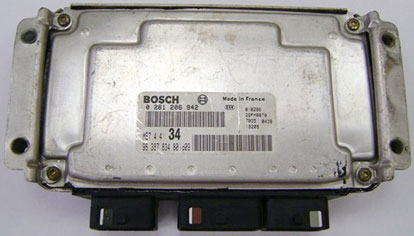The automotive landscape is rapidly evolving, with electric and hybrid vehicles becoming increasingly popular due to their eco-friendliness and fuel efficiency. As more drivers make the switch to these innovative vehicles, it’s essential to understand how car insurance for electric and hybrid vehicles differs from traditional auto insurance. In this comprehensive guide, we’ll explore the unique aspects of insuring electric and hybrid cars, helping you make informed decisions and potentially save on your premiums.
Car Insurance for Electric and Hybrid Vehicles: Key Considerations
- Specialized Coverage
Electric and hybrid vehicles come with their own set of intricacies, and insurance providers recognize this. As such, they often offer specialized coverage options tailored to these cars. These options may include coverage for the vehicle’s expensive lithium-ion battery, electric motor, and other unique components. - Cost of Repairs
One significant factor that influences the rates of Car Insurance for Electric and Hybrid Vehicles is the cost of repairs. The advanced technology and specialized parts in these vehicles can be pricier to fix or replace, which may lead to slightly higher premiums compared to traditional cars. - Battery Coverage
The battery is the heart of an electric or hybrid vehicle, and its replacement cost can be substantial. Some insurance policies provide coverage for battery repair or replacement, ensuring you won’t be burdened with a hefty bill in case of battery-related issues. - Discounts for Environmentally Friendly Vehicles
Many insurance companies offer discounts for environmentally friendly vehicles, including electric and hybrid cars. These discounts can help offset the potentially higher insurance costs associated with these vehicles.

Factors That Affect Electric and Hybrid Car Insurance Rates
- Driving Habits
Just like traditional car insurance, your driving habits play a significant role in determining your premiums. Safe driving practices can help you secure lower rates. - Location
Your location can also affect insurance rates. If you live in an area with a high risk of accidents or theft, you may face higher premiums. - Mileage
Electric vehicles often have a limited range per charge. If you drive fewer miles, you may qualify for lower insurance rates since you’re at a lower risk of being involved in an accident. - Charging Infrastructure
Having easy access to charging infrastructure can be seen as a positive factor by insurance providers, as it reduces the likelihood of running out of battery and needing assistance.
Read more: The Importance of Legal Protection in Car Insurance: Safeguarding Your Peace of Mind
Tips for Saving on Electric and Hybrid Car Insurance
- Shop Around
Don’t settle for the first insurance quote you receive. Compare rates from different providers to find the most competitive premium for your electric or hybrid vehicle. - Bundle Your Policies
Consider bundling your car insurance with other insurance policies you may have, such as home or renters insurance. Many insurers offer discounts for bundling. - Maintain a Clean Driving Record
Safe driving habits can lead to lower insurance premiums, so do your best to maintain a clean driving record. - Take Advantage of Discounts
Ask your insurance provider about available discounts for Car Insurance for Electric and Hybrid Vehicles, safe driving, or any other factors that may apply to your situation.
FAQs
Q1: Is car insurance for electric and hybrid vehicles more expensive than for traditional cars?
Insurance rates for electric and hybrid vehicles can vary but are not necessarily more expensive. While some factors, such as the cost of repairs and specialized components, may influence rates, there are also discounts available for environmentally friendly cars that can help offset these costs.
Q2: What kind of coverage do I need for my electric or hybrid car?
It’s essential to have coverage that includes liability insurance, collision coverage, and comprehensive coverage. Additionally, consider specialized coverage options for components like the battery and electric motor.
Q3: Do insurance companies offer discounts for electric and hybrid vehicles?
Yes, many insurance companies offer discounts for eco-friendly vehicles. These discounts can vary, so it’s a good idea to inquire with your insurer about available discounts.
Q4: Is the battery covered by car insurance?
Some insurance policies may offer coverage for the battery of your electric or hybrid vehicle. It’s important to review your policy carefully and discuss battery coverage options with your insurer.
Q5: Can my driving habits affect my insurance rates for an electric or hybrid car?
Yes, just like with traditional cars, your driving habits can influence your insurance rates. Safe driving practices and lower mileage may lead to lower premiums.
Q6: Are there any location-based factors that affect insurance rates for these vehicles?
Yes, your location can impact insurance rates. If you live in an area with a high risk of accidents, theft, or vandalism, you may face higher premiums.
Read more: The Future Of Car Insurance: A Roadmap To Smarter Coverage
Q7: How can I save on insurance for my electric or hybrid vehicle?
To save on insurance, consider shopping around for the best rates, bundling your policies, maintaining a clean driving record, and taking advantage of available discounts for environmentally friendly cars.
Q8: Are there specific insurance companies that specialize in electric and hybrid vehicle coverage?
While there may not be insurance companies exclusively dedicated to electric and hybrid vehicles, many mainstream insurers offer specialized coverage options tailored to these cars.
Q9: Does the availability of charging infrastructure affect insurance rates?
Having easy access to charging infrastructure can be viewed positively by insurance providers, as it reduces the risk of running out of battery and needing assistance. However, it’s just one of several factors considered when calculating rates.
Q10: Should I inform my insurance company if I make modifications to my electric or hybrid vehicle?
Yes, it’s crucial to inform your insurance company about any modifications made to your vehicle, including changes to the electrical or hybrid systems. Failure to do so could affect your coverage in the event of a claim.
Conclusion
Insuring your electric or hybrid vehicle doesn’t have to be a complicated process. By understanding the unique considerations and factors that affect insurance rates for these cars, you can make informed choices and potentially save on premiums. Remember to shop around, explore specialized coverage options, and take advantage of discounts to ensure that your eco-friendly ride is not only good for the environment but also for your wallet.
Remember that insurance policies and regulations may vary by location and insurer, so it’s essential to discuss your specific needs and circumstances with your insurance provider to ensure you have the right coverage for your electric or hybrid vehicle.


